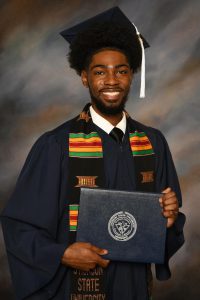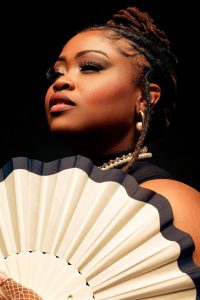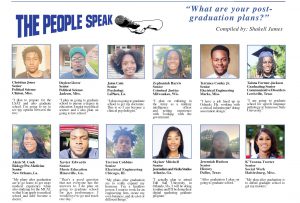 Taylor Bembery
Taylor Bembery
Associate Editor
February is the month designated to celebrate and observe the accomplishments of black people who have made significant contributions to society, past and present.
In 1877 the first class at Jackson State University, then known as Natchez Seminary, consisted of only 20 students. Those 20 students were freed black slaves. Now with a record enrollment of over 9,000, the student body is becoming more diverse. People from all around the world are coming together as one at JSU.
Even though JSU is becoming more diverse, sometimes I wonder if students of other races get uncomfortable when we have programs and discussions about black history or the Civil Rights Movement.
In my classes, there are usually one or two people of a different race. In one particular class, my professor talks about civil rights almost every other day. She likes to enlighten students on the struggles that black people endured in slavery and the Civil Rights Movement. There is a white male and an Asian female in that class.
The first day back at school for Black History Month, an African-American Read In took place. I asked the Asian girl in my class: “Does this make you feel uncomfortable?” I was expecting a made up response but she actually told me it was a bit “too much” for her. It made her feel uncomfortable.
I think the conversation of black history is always relevant because black history is happening every day, especially at HBCU’s. However some professors and students must take in consideration that the discussion may make other students feel uneasy. Other races may feel guilt, discomfort, or even out of place.
I feel all races can identify with Black History. Anyone that is of a different race will not only learn academics at JSU but they will learn of the rich culture of black people. Our university is in Mississippi, and many of the events that change the landscape of civil rights took place here, from the wicked past of slavery to the powerful activism of the Freedom Riders, James Meredith and Medgar Evers. All races should know and learn about the perseverance and courage of those people, no matter what race they are.
Choosing to come to an HBCU as another race is an extension of Black History. There was a time when a white student would not only never have considered attending a black university, they would have been ostracized and faced physical harm, just as the black students attempting to attend predominantly white universities did during the era of Jim Crow and separate but equal. So those students of other races attending HBCU are now a part of Black History. Our ancestors fought hard to live in what we call a color-blind society. The diverse community at JSU exemplifies that we are moving forward to living “The Dream”.





Be First to Comment